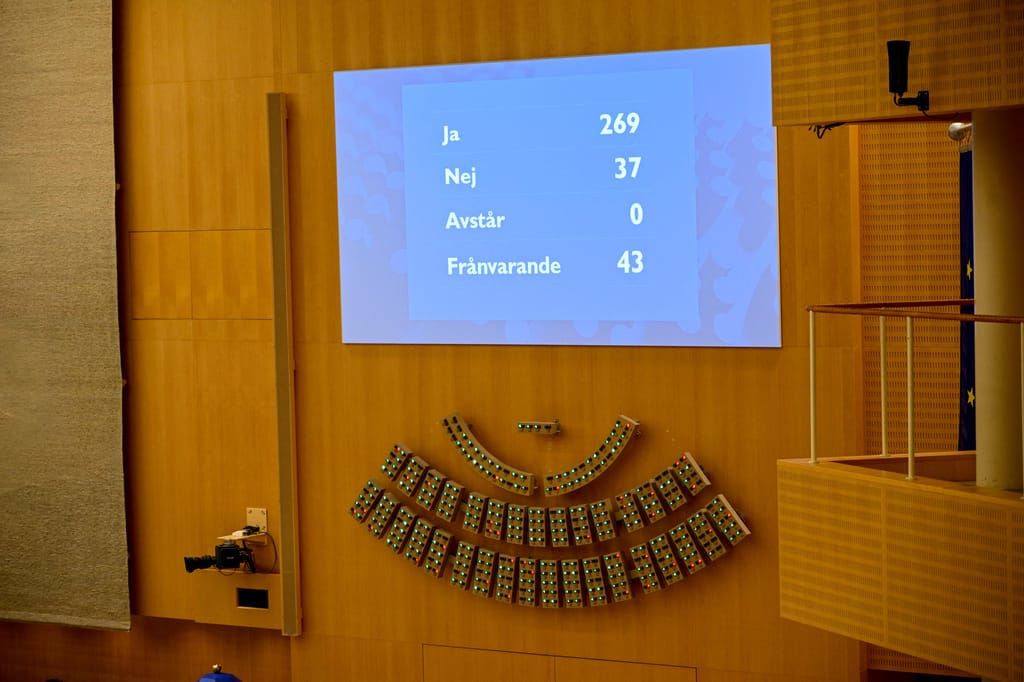
US sanctions Hungary-based bank with Russian ties
The United States on Wednesday imposed sanctions on a Hungary-based bank linked to Russia, marking a new low point in Hungary’s relationship with Washington.
The U.S. Treasury Department announced the penalties, which will target the International Investment Bank (IIB), a controversial institution located in Budapest with ties to the Russian state. The bank’s presence in Hungary has drawn the ire of Western officials, who fear it could be used for Russian intelligence operations inside Europe.
Speaking to reporters in Budapest on Wednesday afternoon, U.S. Ambassador to Hungary David Pressman said Washington had repeatedly shared information with Hungarian counterparts about how Russia could use the bank to expand its influence — to no avail.
“Unlike other NATO allies previously engaged with this Russian entity,” the ambassador said, “Hungary has dismissed the concerns of the United States government regarding the risks its continued presence poses to the alliance.”
The IIB was originally created in 1970 to foster trade within the Soviet bloc and moved its headquarters from Moscow to Budapest in 2019 despite worries from Hungary’s allies.
“We have concerns,” Pressman said, “about the continued eagerness of Hungarian leaders to expand and deepen ties with the Russian Federation.”
In addition to the broader IIB sanctions, the U.S. will also penalize three individuals affiliated with the bank’s leadership — former board chair Nikolay Kosov, a Russian citizen, and two current senior management officials, Imre Laszlóczki, a Hungarian, and Georgy Potapov, a Russian.
While Hungary is a member of both NATO and the EU, U.S. officials have expressed growing concern over the past decade about Hungarian Prime Minister Viktor Orbán’s moves to centralize power at home and build closer ties abroad with Moscow and Beijing.
But the relationship has deteriorated significantly since the beginning of Russia’s full-scale invasion of Ukraine.
Figures close to Orbán have promoted Russian-style anti-American narratives at home, prompting outrage among Western partners.
Unlike most of its NATO allies, Budapest has maintained a relationship with the Kremlin, with Hungarian Foreign Minister Péter Szijjártó even traveling to Moscow for talks earlier this week on gas shipments, oil transit fees and an ongoing nuclear power plant project. An ongoing campaign in Hungary’s government-controlled press targeting Pressman, the U.S. ambassador, has further strained relations.
And Hungary, together with Turkey, is still blocking Sweden’s NATO bid — a decision that has irritated and confused many allies.
 Sweden's parliament voted in favor of joining NATO despite delays by Hungary and Turkey to ratify its membership bid
Sweden's parliament voted in favor of joining NATO despite delays by Hungary and Turkey to ratify its membership bid
Pressman insisted the U.S. did not want its ties with Hungary to rupture.
"We're invested in this relationship, because we care about Hungary," he said.
Yet with IIB, the U.S. government said Hungary is essentially allowing Russia to extend its arm into Europe.
“The IIB’s presence in Budapest enables Russia to increase its intelligence presence in Europe, opens the door for the Kremlin’s malign influence activities in Central Europe and the Western Balkans, and could serve as a mechanism for corruption and illicit finance, including sanctions violations,” the Treasury Department said in a statement.
Even after Moscow launched its war in Ukraine, the department added, IIB executives “have coordinated with Russian Federation officials on IIB business."
This is not the first time the U.S. has sanctioned figures linked to Orbán, as allegations of widespread, high-level corruption in Hungary have long worried Washington. In 2014, America banned several Hungarian citizens from entering the U.S., including the then-head of the country’s tax authority.
Washington has also previously sanctioned individuals in Bulgaria, another NATO ally and EU member. In 2021, the U.S. targeted a slew of high-profile Bulgarian power brokers and entities under the Global Magnitsky Human Rights Accountability Act, which targets perpetrators of corruption and human rights abuses around the globe.
The U.S. then followed up with further sanctions against Bulgarian elites earlier this year.
Comments












